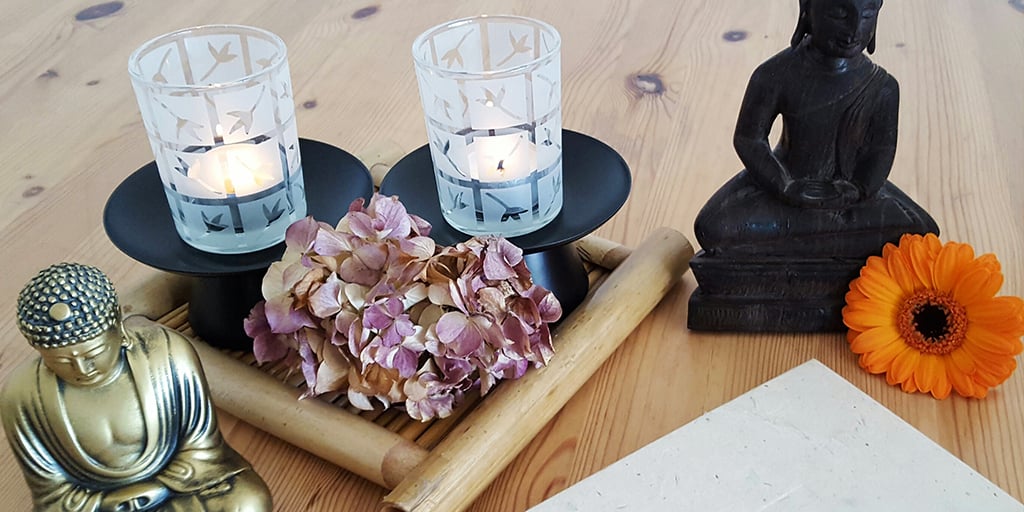Keep Calm and Meditate
Published: 9 October 2020 | Updated: 9 October 2020 | By: Newcastle University | 1 min read
2020 has been a year unlike any we have experienced before.
We have all found our lives being turned upside down by the pandemic so it is not too surprising that the events of this year have resulted in an increase in people reporting mental health issues including anxiety, depression and stress; many have suffered loneliness in isolation and many are fearful of what the future may hold.
As we approach World Mental Health Day in this particularly challenging and stressful year, it seems an appropriate time to consider the benefits of mindfulness, and in particular the practice of meditation, for our mental health. Mindfulness can be defined as being present in the moment; meditation is essentially an extended form of mindfulness.

What is meditation?
So much of our lives are taken up with dwelling on “if only” (the past) and “what if” (the future) rather than “what is” (the present moment); when we are focusing our attention on the present moment we are not worrying about the future or feeling regret and remorse over what has happened in the past. Meditation allows us to be mindful of what is happening within us and to take some precious time for ourselves – to calm our minds, relax our bodies and leave any worries and stresses outside the door. Of course, this doesn’t mean that the worries and difficulties go away, but if we are able to face them with a calmer mind then we may find ourselves in a better position to deal with them.
The benefits of meditation have been well documented and there is no doubt that it is good for your physical and mental wellbeing. Meditation can reduce the heart rate, blood pressure and improve breathing technique; it can reduce stress and settle the mind. Even a few minutes’ quiet time each day focusing attention on the breathing can bring benefits. Meditation rewards practice: the more often you meditate the easier it will become, and you will see increasing benefits.

How can I give it a try?
Chris Earle-Storey, the University’s Assistant Buddhist Chaplain, offers guided meditation sessions which are open to all Newcastle University students and staff; no experience is necessary and Chris will take you through what to do step by step. Although the sessions have their roots in Buddhist meditation, they are accessible to anyone, regardless of faith background. Chris has also kindly recorded three meditation sessions which can be found here and may give you a taste of what the guided sessions entail.
If you are interested in joining one of Chris’ guided meditation sessions (offered via Zoom for the foreseeable future) please email her at chris.earle-storey@ncl.ac.uk
She very much looks forward to meeting you.
